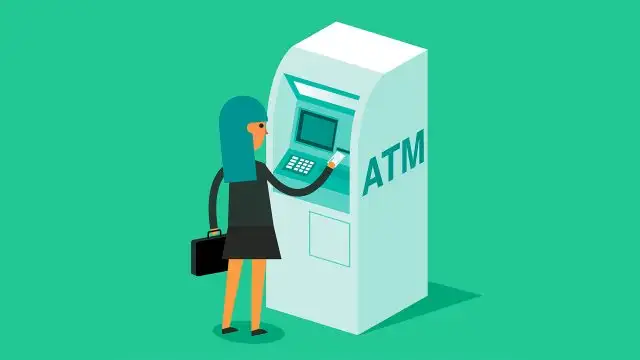Deposits at ATMs can be convenient, and they typically work well. However, you may experience problems or have doubts about depositing money at ATMs. It’s best to understand some of the pitfalls of ATM deposits so you can prevent unpleasant surprises, such as safety concerns and any special requirements.
The Safety of ATMs for Deposits
Your deposits ought to be successful and error-free in most cases. But consider the consequences of an error. Especially when you’re making a large, important deposit—or if you’re in danger of bouncing checks—an ATM might not be your best choice. From time to time, there will be errors. You might not experience any problems in your lifetime, and your bank can resolve most issues without causing additional complications. Nevertheless, you’re working with a device that is susceptible to error.
There are many terrifying tales about unsuccessful ATM deposits. For example, money could vanish immediately after going into the slot, or maybe there’s no record made of the deposit. If your deposit is significant, go inside a branch, and work directly with a teller.
No matter what you’re doing at an ATM, it’s always smart to follow some basic ATM security practices.Pick secure locations.
Safe ATM deposits can be made at ATMs located inside bank branches, in secure neighborhoods, and in locations where security personnel are present.
Plan ahead
Organize your deposit, so you’re not fumbling with cash before putting it into the ATM. If you need to use a deposit slip, fill one out before you head to the ATM.
If an error occurs, the ATM operator must review the transaction, any security footage, or the internal workings of the device (including any jammed bills), and then report back to your bank. In many cases, the ATM operator is a separate organization—not your bank. Even if the ATM is located in a bank branch, the employees inside probably cannot open up the machine.
Utilize the deposit ATM at your bank
You might only be able to make deposits at ATMs owned by your bank, but your bank may belong to a network that allows you to deposit funds with an ATM in the network. However, it’s best to use the ATM at your bank.
If you use a deposit ATM from another bank (within the network), your funds might not show up in your account as quickly as they would if you had used your bank. 1 That’s fine if you’ve got sufficient funds in your account, but it can cause overdrafts, fees, and other problems if you don’t.
Money Available Following Your Deposit
Your bank has policies that spell out when funds are available. For deposit ATMs, the rules might be different, so call your bank, and check the funds-availability policy for details. From a check deposit, you can typically anticipate having $200 or so available right away, with the remaining funds being placed on hold and becoming available after a few business days.
When you deposit at an ATM, however, your money might not be available as quickly. Your money should be available sooner if the deposit is made in person with a bank employee. 3 But remember that you’re responsible for any deposits you make.
Note
Any funds that your bank permits you to withdraw or spend if a check bounces or is returned as a forgery must be replaced.
Alternatives to ATM Deposits
Deposit using a mobile device
You might be able to use a mobile device, computer, or scanner to deposit checks if your bank permits it. With that strategy, you won’t even have to leave your home to avoid the majority of the above-mentioned pitfalls. Gaining access to remote deposit technology might even be worth opening an account at an online bank that provides those services.
Electronic transfer
Consider switching to direct deposit if you frequently deposit paychecks. By doing this, money will be transferred electronically and directly into your account; using this service is usually free. Ask your employer how to sign up.
Shared Branching
If you use a credit union, you may be able to use branches of thousands of different credit unions nationwide through shared branching. Find out whether your credit union participates. If so, you can deposit money with a teller at convenient times and places, whether in person or at a drive-through.
Note
In some cases, you’ll just have to go inside your bank and deposit with a teller.
Frequently Asked Questions (FAQs)
Are ATMs open round-the-clock?
ATMs are usually left on through the night. You can probably deposit money or withdraw money at any time if the ATM is located somewhere like a street corner that is open all hours.
Do ATMs take coins?
Most ATMs do not take coins. If you want to deposit coins, you’ll need to go into a branch and deposit them with a teller.
How do you deposit a check at an ATM?
If a bank machine accepts check deposits, the procedure is straightforward. Once your account information has been displayed, you’ll insert your debit card to access the ATM screen and choose “check deposit” or a similar option. You’ll then enter the check’s value on the number pad and deposit the check or checks into the ATM.

